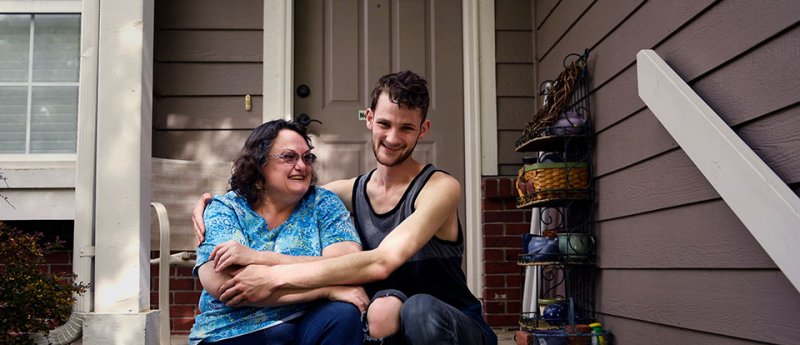 Housing
Housing
-

Proposed budget cuts to the Department of Housing and Urban Development (HUD) would likely result in a loss of federal housing assistance--and potential rent hikes--for thousands of low-income families. Our forthcoming study will test whether differences in the monetary value of housing assistance received by households translates into meaningful differences in health outcomes.
June 6, 2018
|P4A Spark
| -
Housing organizations and health providers have realized they are natural allies. They serve the same people living in the same places, and are learning that their missions are aligned: improving housing quality and stability can lead to better population health outcomes. A growing emphasis on prevention within the health care sector has housing organizations eager to help. But partnering across sectors can be bumpy.
September 20, 2017
|P4A Spark
| -

One of six case studies featured in our new report Emerging Strategies for Integrating Health and Housing, Foundation Communities’ success highlights how housing leaders can partner with health care allies to better the lives of low-income residents. Its early successes show that we must break down cross-sector silos and engage new partners to make progress on social determinants of health.
August 29, 2017
|P4A Spark
| -
Children and FamiliesEmerging Strategies for Integrating Health and Housing
Elaine Waxman and Corianne Scally of the Urban Institute Research Hub have released a new study examining emerging interventions that integrate housing and health services for low-income people, focusing on interventions where health care organizations have taken a significant leadership role.
July 19, 2017
|Evidence
| -

As Carson crafts his strategic goals for the agency, he should look to emerging cross-sector collaborations across the country to improve health outcomes through housing.
January 26, 2017
|P4A Spark
| -
HousingExamining the effects of housing, incarceration and other policies on health outcomes in New York
Building on their work as a past Policies for Action research hub, this project will leverage existing data sources to evaluate the impacts of various past and present policies on health and racial equity in New York.
February 20, 2024
|Has Evidence
| -
Children and FamiliesHow Federally Assisted Housing Supports Adults and Families with Disabilities: A Study of Reasonable Accommodations and Services
Housing policy is disability policy, particularly for low-income households served by federal housing programs. People with disabilities are overrepresented in federally assisted rental housing, with 407 out of every 1,000 assisted households reporting a disability.
April 27, 2022
| -
HousingProtecting Tenants, Landlords, or Places? The Ecology of Rental Housing Regulation in Illinois
Within the local government context, municipal code enforcement involves relatively entry-level decision makers operating across a highly uneven and diverse tapestry of neighborhoods and living situations. Implicit in code enforcement practices is a blending of objective health and safety concerns with highly subjective social and cultural norms.
December 15, 2021
| -
The US is facing a housing affordability crisis that continues to exacerbate economic and racial inequities. Inclusionary zoning policies (IZ), which require real estate developers to include below market-rate units in new housing projects, and rent control regulations, which place caps on rental price increases, have reemerged as potential solutions to the housing affordability crisis. However, rent control and IZ policies are complicated and controversial. Studies generally find that rent control decreases rents for tenants in controlled units, but that these benefits may be offset by greater costs in the uncontrolled rental market. Likewise, while there is some evidence that IZ policies can provide economic opportunity for residents with low incomes, critics argue that they also reduce the overall supply of housing and serve as a short-term solution to the larger problem.
October 14, 2021
| -
Long before the novel coronavirus, poor and working-class communities of color across Florida were weathering a pandemic of multilayered oppressions. COVID-19 lays bare the systemic and structural inequities as pre-existing conditions for the most historically marginalized among us. And while housing is one of the most researched social determinants of health, effective policies have not been adopted to promote residential stability. Florida’s complicated political landscape has led to weak and fragmented tenants' rights protections and limited tools for affordable housing, which creates a structural vulnerability for the most underserved communities. In this project, the research team will study three Florida urban counties that have implemented COVID-related tenant protections in divergent ways (Miami-Dade, Orange, and Hillsborough counties).
January 27, 2021
| -
Within the last decade, debates on rent stabilization have reemerged among housing researchers, policymakers, and the communities they serve, especially in regions where low-income communities of color have experienced skyrocketing rents and disproportionate rates of residential displacement. As a whole, research on rent stabilization has produced mixed findings and limited empirical analysis to effectively guide policy decisions. This study seeks to address the uncertainty over rent stabilization’s effects by providing an evidence-based analysis of the early impacts of rent stabilization policies on tenants in the cities of Mountain View and Richmond, two jurisdictions in California’s San Francisco Bay Area that adopted rent stabilization ordinances in 2016.
January 27, 2021
| -
Early research suggests Middle Neighborhoods (MNs), communities that offer affordable housing that is not a result of specific affordable housing policy and access to many outlets that positively shape health and well-being, are opportunity-rich with place-based resources, and policy innovations at the city level hold the potential to increase this existing housing affordability and stability.
January 27, 2021
|